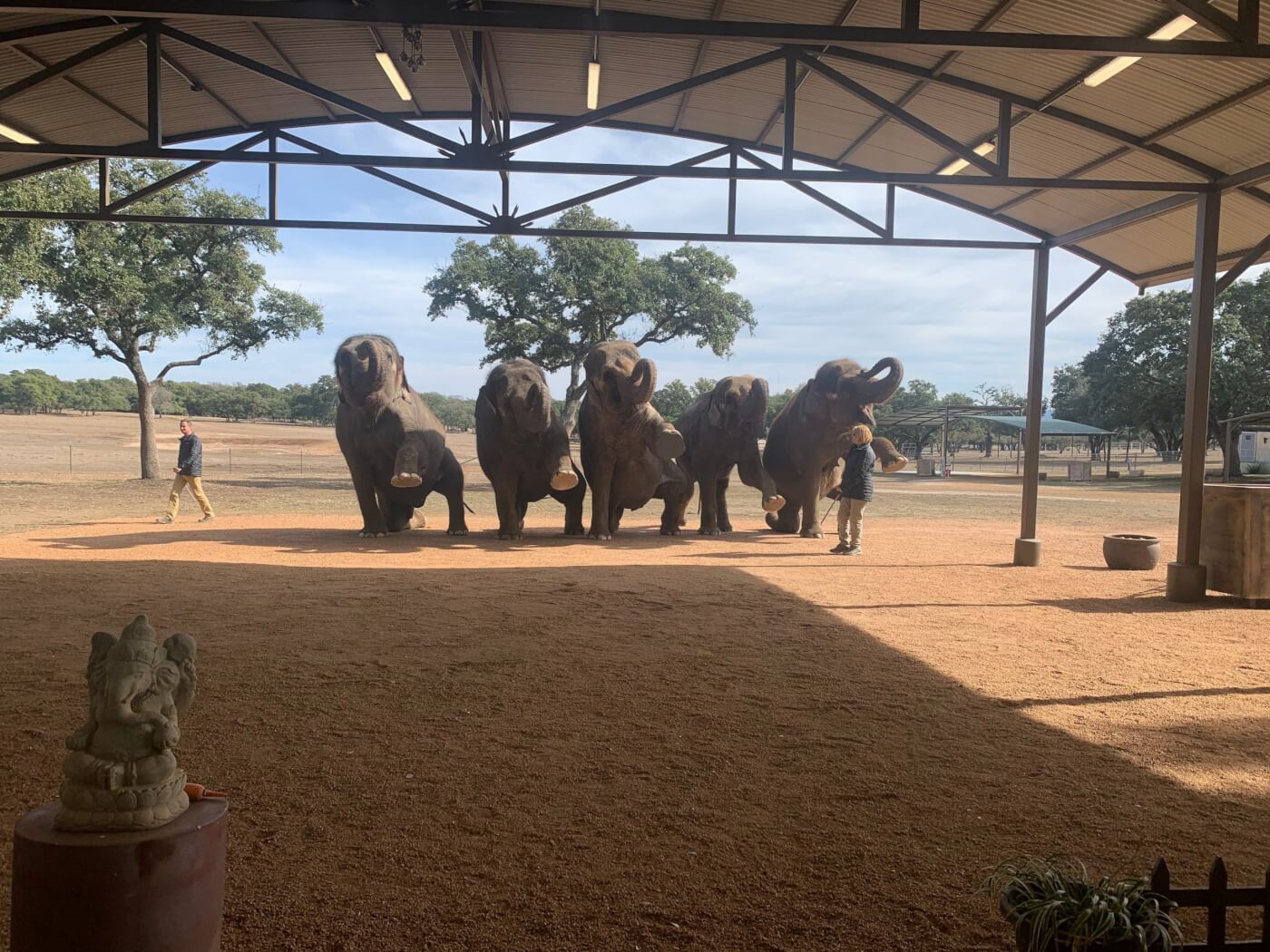Goodbye, Tai: PETA Laments Death of Elephant Forced to Perform in Movies, TV
PETA and compassionate people everywhere are mourning the death of Tai the elephant, who was abducted from her home in nature as a young calf and forced to appear in films and TV shows, including Water for Elephants and Westworld. She was beaten with weapons called bullhooks and electrically shocked by Hollywood animal exhibitors Kari and Gary Johnson, who formally did business as Have Trunk Will Travel (HTWT), as this video shows. Now, to stop Tai’s abusers from having the last word, PETA has released an obituary written from her perspective looking back on a life of misery.
Tai the Elephant’s Obituary
I died at the age of 53 after leading a miserable life that I never chose for myself. That’s Hollywood for animals like me.
My time “in the biz” began in 1978 after I was taken from my mother in Asia and eventually sold to Kari and Gary Johnson—owners of Have Trunk Will Travel (HTWT), an elephant supplier for movies and TV shows.
W.C. Fields said never to work with animals. Trust me—the feeling’s mutual. I could’ve enjoyed living out my years with my family in nature, but instead I got a one-way ticket to a life of exploitation. Where was the Screen Actors Guild when I was being trucked to and from film sets, chained and standing in my own waste, or trucked around to state fairs when film jobs were scarce?
The Johnsons poked, prodded, and punished me with sharp, metal weapons—whatever it took to create the illusion that I was theirs to control and to keep me from harming a hair on Reese Witherspoon’s head.
I was hoping someone would catch all this on camera, and they finally did, but it didn’t faze the industry. My suffering went ignored for years.
There was finally hope when CGI started replacing live animals, but HBO’s Westworld deserves a special shout-out for forcing me onto yet another set, even though a CGI tiger was created for the same episode. That’s right—HBO exploited a real elephant to depict a robot one.
In lieu of flowers, send e-mails, tweets, voicemails—do anything you can to urge production companies never to use real wild animals. I’m survived by Kitty, Rosie, and Becky, who are still trapped at the HTWT hellhole, and I know they’d appreciate your help. You know us elephants—we never forget.
Here’s How Elephants Like Tai Suffer When Used for Entertainment
For years, HTWT carted Tai and other elephants around the country, forcing them to perform tricks and give rides under the threat of violent punishment. In their native homes, elephants are always on the move and spend their days foraging, socializing, swimming, and playing. But Kari Johnson acknowledged under oath that her company had chained elephants for more than 12 hours a day.
When California banned the use of bullhooks, the Johnsons moved their operation to Texas and rebranded it as “The Preserve,” where Tai’s friends still languish. Elephants at this sham sanctuary are used for stunts such as bathing, painting, standing on their heads, and playing instruments, all while being prodded by trainers wielding bullhooks. Tai was the second elephant to die at The Preserve this year.

Don’t buy the “humane-washing.” True sanctuaries don’t force animals to interact with the public or perform tricks, and they don’t use violent training methods that involve weapons.
Tai the Elephant: Her Miserable Life as a Forced, Unwilling ‘Performer’
During her life, Tai the elephant was forced to appear in several major productions, including Westworld, Water for Elephants, and Operation Dumbo Drop. But there was no Hollywood ending for her. Her death comes after decades of abuse, confinement, and forced appearances on movies and TV shows.
Production company execs owe it to the animals exploited for their films and shows and the ones still trapped at training compounds to read Tai’s account and commit to using only tech, not terror, to depict animals. Elephants and other species are individuals, not movie props. Computer-generated imagery, animatronics, and other animal-free technology can create seamless, thrilling action without cruelty.
PETA is urging the Johnsons to give the remaining elephants at The Preserve—Kitty, Rosie, and Becky—a true retirement at an accredited sanctuary, where they can receive expert care and have the freedom to roam, forage, socialize, and play on their own terms.
What You Can Do for Animals Like Tai The Elephant Who Are Used in Film and TV Productions
By avoiding shows and movies that use animals, you can send a powerful message to Hollywood that profits won’t come without principles. Viewers today expect entertainment executives to keep animals out of their projects. That’s why PETA encourages compassionate movie and TV fans to urge the industry to adopt modern and ethical animal-free policies. If you confirm that a production used live animals, be sure to post your disapproval on the social media pages of the director, the network, and the production company. Then, encourage your friends, family, and social media followers to do the same.
PETA relies on casts and crews to help change the entertainment industry from the inside. Anyone who sees animals being used on a film or TV set or at a training compound should contact our whistleblower hotline at 323-210-2233 or send an e-mail to [email protected].
